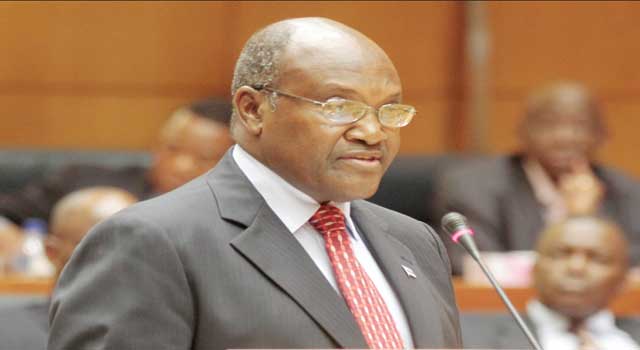Moody’s Investor Service has reaffirmed Botswana’s “A2” sovereign credit rating for 2014. A statement released by Bank of Botswana’s Head of Communications, Andrew Sesinyi last week stated that Moody has reaffirmed an “A2” credit rating for Botswana in both foreign and domestic bonds as well as stable economic outlook.
The “A2” rating was based on assessment of Botswana’s relatively strong balance sheet, net external creditor position and low public debt against potential challenges associated with middle income status and a relatively small economy. In making the assessment, Moody’s emphasized the country’s sound policy framework, effectiveness of government and a track record of prudent fiscal policies, which result in continued strengthening of government’s net financial position. Because of effective fiscal consolidation in the aftermath of the global financial crisis, Botswana’s debt remained low while fiscal surpluses are expected to continue.
The assessment further noted that in 2014, consumer price inflation remained within the Bank of Botswana’s medium-term objective range of 3 – 6 percent, while the crawling band exchange rate policy continued to support monetary stability and economic diversification. However, Moody highlighted Botswana’s continued over dependence on diamonds and the relatively slow pace of economic diversification as key weaknesses over the long term. As in previous years, Moody’s noted that given Botswana’s healthy financial position and stable political and financial environment, risks that could put renewed pressure on the country’s rating are considered low. Over the years, Botswana has consistently scored favorable ratings from world ratings agencies both on economic outlook and fiscal prudence. However, failure to diversify the economy, high unemployment and a high incidences of HIV/AIDS have been identified as key credit constraints.
In his 2013-14 budget speech, Minister of Finance Ken Matambo said global economic ratings have enabled Botswana to measure competitiveness and formulate policies that will attract foreign direct investment. Apart from Moody’s, Botswana also subscribes to Standard and Poor (S&P). The two agencies have been assessing Botswana’s sovereign credit rating since 2001. Botswana has consistently been awarded ‘investment grade’ ratings which are the highest in Africa, due its track record of prudent economic management and substantial financial reserves.
The 2014-15 financial budget reaffirmed Botswana’s commitment to maintaining budget surpluses for the second-half of NDP 10 as it was the third consecutive budget with a planned surplus. The envisaged 2014-15 budget surplus of P1.326bl was larger than the 2013/2014 FY surplus of P386.16m. Economists have hailed Botswana’s budget surplus as an appropriate move that will prevent large fluctuations in real exchange rates and enable Botswana’s economy to appropriately respond to intrinsic booms-busts cycles or engage in active anti-cyclical expenditure policies. Economists also commended Botswana for its commitment to accelerating economic growth as evidenced by budget allocations to key economic infrastructure such as water, energy, and communications to support growth, completion of on-going projects and increasing the human capital.
“This demonstrates that government is committed to maintaining a
vibrant, efficient and properly regulated private sector that is capable of generating sustainable economic development,” they said.

